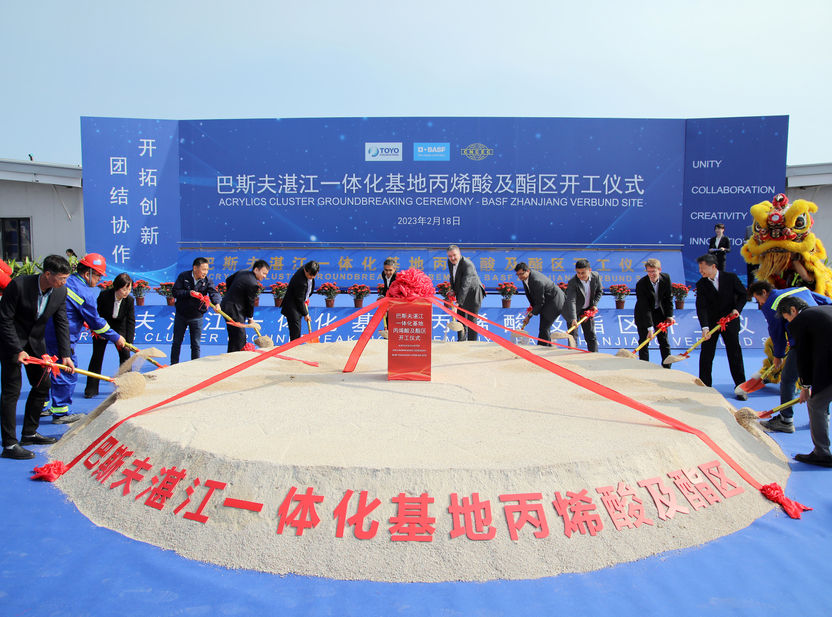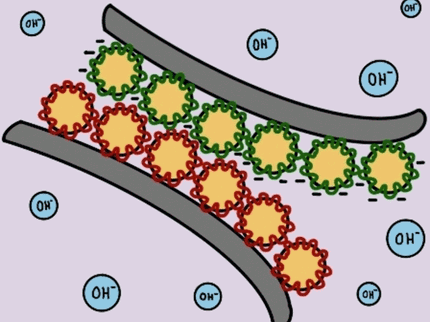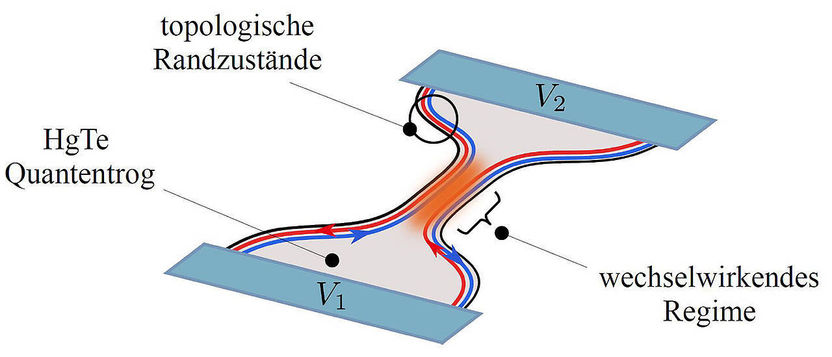BASF breaks ground on acrylic acid complex at Zhanjiang Verbund site in China
Products serve the fast-growing acrylic acid value chain in China and Asia Pacific
BASF has broken ground on a new production complex at its Verbund site in Zhanjiang, China, that includes plants for glacial acrylic acid (GAA), butyl acrylate (BA) and 2-ethylhexyl acrylate (2-EHA). Planned to come on stream by 2025, the complex will have an annual production capacity of approximately 400,000 metric tons of BA and 100,000 metric tons of 2-EHA.

BASF has broken ground on a new production complex at its Verbund site in Zhanjiang, China. These new world-scale facilities will enable BASF to meet the growing Chinese and Asian market demand for acrylics that are used in various industries like hygiene or paint and coatings.
BASF SE
“The groundbreaking marks a significant milestone in further expanding our production capacities in the acrylics value chain in China,” said Hartwig Michels, President of BASF’s Petrochemicals division. “These new world-scale facilities will enable us to meet the growing Chinese and Asian market demand for acrylics that are used in various industries like hygiene or paint and coatings.”
“By strengthening our presence in key markets where our customers are located, we can more efficiently support our customers’ business growth. Being fully backward integrated in Zhanjiang Verbund site, the new acrylics facilities will provide our regional customers with a reliable supply of high-quality products with short lead times,” said Haibo Tian, Vice President, Industrial Petrochemicals Asia Pacific, at BASF.
Acrylic acid is an important precursor for the production of superabsorbent polymers. Butyl acrylate, an ester of acrylic acid, is used, for example, in the production of adhesives and architectural and industrial coatings. 2-ethylhexyl acrylate is an important raw material for adhesives and coatings.
Most read news
Other news from the department business & finance

Get the chemical industry in your inbox
By submitting this form you agree that LUMITOS AG will send you the newsletter(s) selected above by email. Your data will not be passed on to third parties. Your data will be stored and processed in accordance with our data protection regulations. LUMITOS may contact you by email for the purpose of advertising or market and opinion surveys. You can revoke your consent at any time without giving reasons to LUMITOS AG, Ernst-Augustin-Str. 2, 12489 Berlin, Germany or by e-mail at revoke@lumitos.com with effect for the future. In addition, each email contains a link to unsubscribe from the corresponding newsletter.


























































